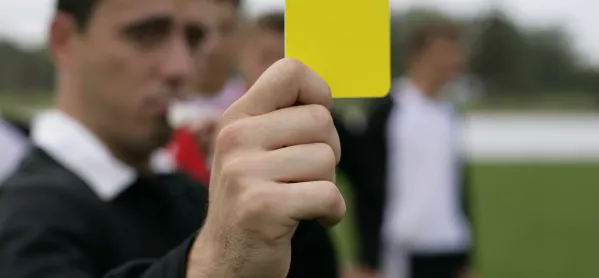I long ago learned the hard way that, despite asking him a number of times if my son had already done it and getting a positive response, I would still need to check all of the pockets of his blazer before washing it. Phones, money, pens, homework sheets, headphones, food - they have all nearly ended up on a spin cycle.
The financial benefits of checking are huge (new washing machines are not cheap; new phones even less so) but sometimes the insight you get into what is happening at school is just as valuable.
A while back, I rescued a credit card-sized laminated slip. On closer examination, I could see that it entitled my boy to go to the front of the lunch queue at a time of his choosing.
The problem with rewards
I asked him why he had it.
“Apparently I did something good. No idea what,” he replied.
If you’ve been reading this column long enough, you’ll know my world view on rewards, but it wasn’t the transactional nature of this particular reward that set me thinking.
I could immediately see the appeal of such a reward. Lunchtimes in many secondary schools these days are relatively short affairs and that means that if you want to eat, you need to be quick about it. Anything that cuts down the time spent queuing could be worth having (or selling, I imagine).
What bothered me about the concept was that it disadvantaged others, especially children with disabilities.
Disadvantaging others
Students who had made their way quickly to the lunch hall suddenly found themselves further back in the queue through no fault of their own. Sure, there are worse things that happen in schools, but I can imagine being cheesed off seeing others strut to the front to take the last chicken burger after I’d busted a gut to get there as quickly as possible.
Rewards such as this also operate on a quota system. You can only issue so many queue-jumping tickets before the whole thing breaks down. To get to the front, there has to be a queue in the first place; not everyone can be first.
Behaving well in schools shouldn’t be a competition. It should be about behaviour that is at least good enough, and this is of course possible for every child in every school every day.
Recognition not reward
If systems only recognise, say, the top 10 per cent, then the vast majority will always go unrecognised.
I also suspect that such systems essentially identify children who find it easiest to be successful in schools.
This is one reason why I wholeheartedly encourage schools to adopt a policy of recognition and not reward. Recognising when children have behaved well and, more importantly, behaved better, does not need to be rationed.
It is bad enough that our exam systems operate on the basis that any improvement in one area must be counterbalanced by a deterioration in another to avoid inflation. Behaviour systems in schools shouldn’t be bound by such restrictions. For one student to win another shouldn’t have to lose.




